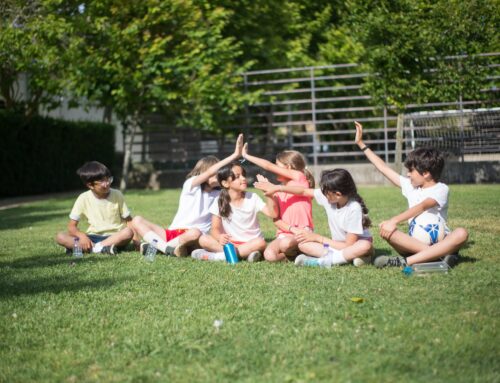Help! My strong-willed child won’t take “no” for an answer
Does it feel like your child is in charge? Is getting even the tiniest amount of cooperation impossible when they dig in and refuse to take “no” for an answer?
You are not alone!

Far from it, actually. As a parenting coach I’m constantly presented with this scenario – often by parents at the very end of their rope. For the parents of a strong-willed child, just getting through a regular day is a battle of wills. It can leave you feeling frustrated, overwhelmed and even helpless.
So, how do we help a strong-willed child to soften their stance? I’ve gathered my most useful advice, insights and techniques for you:
Strong-willed children have strong feelings, meet them where they’re at:
There are many reasons why children can be strong-willed. Yet one thing they all have in common — driving their temperament and behaviour — is their strong feelings.
The way we respond to those feelings has a lot to do with how things end up. What won’t work is to add more pressure to a child who is already in an entrenched position. A strong-willed child will dig their heels in even more. In parent coaching we work on ways to understand what is going on internally for your child to find the reasons for the behaviour. Pausing for a moment to think about how our child feels is the first step.
Coach, don’t contradict:
You are your child’s greatest resource.
By learning to be their emotion coach, you can reflect back and soothe their strong feelings. Understanding how to help a strong-willed child process their emotions allows progress. Once their emotions are processed they become more open to encouragement and cooperation. Here’s my article on how to be an emotion coach on a morning when your child doesn’t want to get up:
Focus on the positives
Strong-willed kids often get negative labels: difficult, stubborn, defiant or just plain bad.
But if you think about it, is it really all bad to have a child who won’t take “no” for an answer?
The positives don’t tend to jump out at us when we feel worn down and frustrated. However, if we’re able to pause and reframe the situation, we can see: persistence, determination and bravery. These children actually have a lot of really good qualities that can serve them well later in life. We admire these qualities in adults and yet we can find them annoying or unreasonable in children. Try thinking about the behaviours as trial runs for the attributes we want our child to have as an adult? Children who are strong-willed need to hear themselves being spoken about in positive ways, for instance:
“You’re a person who feels things strongly. You know what you want and you really stick to it.”
“I see that you are someone who likes to be in charge, you could be a great leader someday.”
So take a moment to think about the future when your child will be an adult. What sort of person will they be? Will they stand up for themselves? Will they fight for what they believe in? If you feel like your child is starting to show all the signs of becoming a budding lawyer try and remember that Nelson Mandela’s mum probably didn’t have an easy time of it either.
Don’t let unrealistic expectations get in the way of progress
We all have big expectations for our kids. When they’re little and vulnerable we have a strong instinct to protect them. Along the way we develop expectations for their behaviour, habits and temperament. We want them to do the right thing because it’s the right thing to do. Often, we want them to do what we ask because it’s easier, we’re in a hurry and we just expect it.
We feel frustration because we think our child should do what we ask because we said so and without resistance. Following instructions straight away, without questioning, can be hard for a strong-willed child. Try to adjust your expectations, accepting what your child is capable of at their current stage of development.
Instead of:
“My daughter should do what I ask, full stop.”
Reframe it as:
“My child could do what I ask, when I teach her skills to unlock and when she has had a lot of practice over time and when she’s ready.”
It’s easy to say, and much harder to put into practice: Our job as the adult in the relationship is to remain flexible and understanding. It’s worth it, the more we model a flexible and understanding approach, the easier it will be for our strong-willed child to accept the limits we impose to keep them safe.

Be Flexible
A common instinct among parents of strong-willed children is to try and squash defiance out of them with discipline. A glance through the comments on any Facebook parenting page will be full of admonishments for “weak” parents and advice around “showing your kids who’s the boss!”. Fear of being seen as permissive is a major factor for parents who react with harsh punishments and consequences.
But it just doesn’t work. Families end up stuck in a cycle of punishment and misbehaviour because parents fear that they are losing control.
When we use up our energy to punish and deliver consequences we’re missing out on the valuable teachable moments that a strong-willed child really needs to build skills. When we rely too much on rules and consequences, we weaken trust and connection in our relationship. We might get compliance but it will likely be a begrudging compliance. Strong-willed kids need more empathy and connection to help them to trust us and allow them to show vulnerability. We need to make it easier for them to accept the limits by understanding how to meet their needs and showing them how to be flexible.
For more on why punishment doesn’t work; https://gtgparenting.co.nz/2019/10/10/why-punishment-doesnt-work/

Try DIY:
Strong-willed kids need to learn important skills like flexibility and how to work as a team. By practising being calm, alert and focused we are wiring flexible approaches into the brain over time. One of my favourite techniques for fostering flexibility in strong-willed children is a simple exercise called DIY. It helps encourage flexibility and perspective.
Below I’ve illustrated an example of how DIY works. On the surface, it looks like we’re teaching sharing, but it’s also teaching thoughtfulness and turn taking, important aspects of working flexibly as a team:
- Describe a problem: “Hmmmm…. there are two kids and only one scooter.”
- Give information: “It would be fair to make sure that both people get a turn.”
- Ask your child to find a solution: “What could you do to make sure everyone gets a fair turn?”
That’s it!
With just a simple thought-exercise, you give your child a chance to experience flexibility as a method for problem solving. I recommend these small and powerful lessons in quiet and calm moments for the best result.
You can do it, over time and with practice.
With time and a lot of practice we can support our determined and strong-willed children to learn to navigate the areas they find hard. We need to be the calm, alert and focused parent helping them through the struggle so that they can go on to have good relationships with others as well as standing up for themselves.




